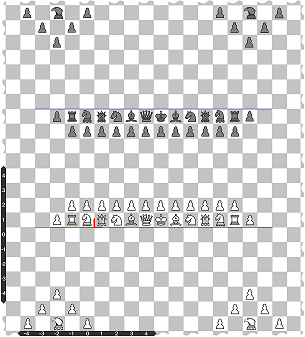When will we "solve chess?"
certainly not in anyone alive on the planet's lifetime. But afterwards who knows what technology has in store for us.
Solving chess does not require storing the entire tree, however.
The topic of solving chess is a very interesting problem to mathematicians and chess-theorists, and it has been the subject of numerous academic papers. One of the earliest was by Claude Shannon in 1949. In his paper, he estimated the game-tree complexity of chess as 10^120, and therefore concluded that solving chess will require an approach other than a simple brute-force analysis.
More recently, Victor Allis studied the topic and he provided a chart of several classes of games, including connect-four, checkers, othello, and chess. Since this time, both programmers and mathematician continue to look for improved theory and algorithms which may be able to solve increasingly complex games which are intractable to solution by brute force.
Not only has chess been cited as the next "pinnacle" among games to be solved, but new chess-like games have been conceived, adding new theoretical hurdles to the scope of unsolved games. These include "infinite chess" (chess on an unbounded board), and more recently Trappist-1 (infinite chess with huygens chessmen).

The huygens is a chess piece which jumps prime numbers of squares. Since the set of prime numbers is itself unknown, and cannot be efficiently calculated with any known algorithm, some mathematicians have argued that Trappist-1 may be an eternally unsolvable game.![]()

I think people are thinking that having a lot of squares and a lot of pieces makes a game unsolvable because the possibilities seem infinite. But since there is a finite number of squares and pieces the solution is just an equation with a large number attached to it. Any mathematician can figure it out.
Up to this point in time all positions involving seven pieces or less have been solved. This is just a matter of raw crunching power, and for me as a layman it's hard to see why this should continue to be interesting for mathematicians and chess theorists. To us mere mortals, a for more pressing issue is the way computer engines affects real life play. There was a time not so long ago when theoretical debates about specific opening lines went on for years. Now those are practically speaking solved within half an hour by any half decent chess engine. In my view, this is a great threat to competitive chess.
I should think that as the results of several piece endgames are known and the extent of opening position evaluations approach each other this cuts down tremendously on the number of moves to be sifted through.
Although, Before the endgame, the Gods have placed the middle game. ~ chess quote by Siegbert Tarrasch.